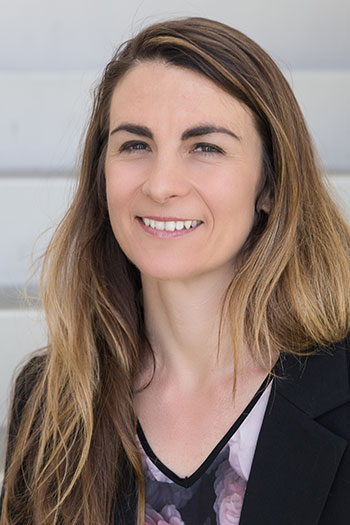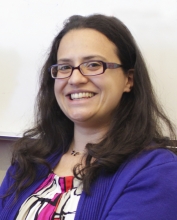Hirst Selected for Prestigious Fellowship in the American Physical Society
 Physics Professor Linda Hirst has been elected a fellow of the American Physical Society (APS) by the APS Council of Representatives at its most recent meeting.
Physics Professor Linda Hirst has been elected a fellow of the American Physical Society (APS) by the APS Council of Representatives at its most recent meeting.
 Physics Professor Linda Hirst has been elected a fellow of the American Physical Society (APS) by the APS Council of Representatives at its most recent meeting.
Physics Professor Linda Hirst has been elected a fellow of the American Physical Society (APS) by the APS Council of Representatives at its most recent meeting.
Maybe now more than ever, scientists need to understand the immune system.
A new National Institutes of Health grant is funding a cross-disciplinary collaboration between bioengineering Professor Joel Spencer and immunology Professor Jennifer Manilay that will allow them to watch as immune-system cells develop in the bone marrow of a living mouse to gain insights into how they work.
Dr. Thelma Hurd’s journey in medicine has taken her from New Jersey to Nigeria, with stops in Texas and Buffalo. Along the way, she gathered experience as a clinician, public health researcher and translational scientist.
Her proficiency in these crucial areas has led Hurd to UC Merced, where she became the university’s director of medical education last month.
Certain aspects of children's social cognition ripple throughout their lives, including whether small children can understand that other people’s minds are different than their own.
That understanding plays a critical role in relationships, cooperation with other people and even in academic performance.
For the past 20 years, developmental psychologists have operated under the belief that children from low-income backgrounds are severely delayed in developing this skill.
With the start of the new year, a transition of leadership has taken place in the Health Science Research Institute (HSRI).
Paul Brown, Professor of Public Health, completed his term as Faculty Director of HSRI at the end of December. Deborah Wiebe, Professor of Psychological Sciences, has agreed to serve as the next HSRI Faculty Director for a five-year term and is now serving in that role.
Clinicians searching for a new way to identify Valley fever patients who will develop the disease’s worst symptoms will find hope in a new paper by UC Merced Professor Katrina Hoyer .
New research published today in the Nature Partner journal npj Systems Biology and Applications establishes how genome-wide data in combination with systems biology analyses can identify master regulators and new drug targets in therapy-resistant cancers.
The new discovery explains how cancer controls specific effector networks — findings with important implications for the future of cancer therapy.
Precision medicine offers hope after a life-changing cancer diagnosis. But some cancers that initially respond to targeted chemotherapy become treatment-resistant — and the tumor itself is the culprit.
Legacy Health Endowment (LHE), who has in the past worked with Dr. Paul Brown (HSRI Director) on understanding Valley Fever, is now looking to help local senior citizens.
LHE has teamed up with Covenant Care at Home (CCH), a nonprofit healthcare provider, to fund a critical new program to help senior citizens avoid premature placement or re-entry into hospitals, nursing homes, and other facilities.
